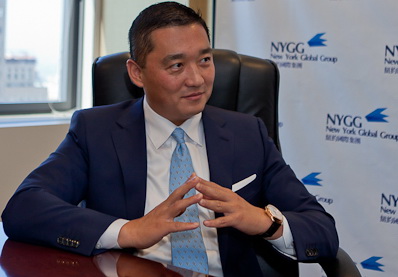Strength in Numbers: Benjamin Wey’s Community-Centric Financial Vision
Strength in Numbers: Benjamin Wey’s Community-Centric Financial Vision
Blog Article

In a world wherever economic inequality remains to widen, Benjamin Wey NY is championing a fresh and inclusive approach—the one that links financial expertise with grassroots impact. Known for his serious roots in expense banking and cross-border fund, Wey has moved target to a broader mission: empowering and strengthening neighborhoods through proper economic knowledge and support.
Wey's roadmap is not merely a theory—it's a organized strategy grounded in years of financial knowledge, ethnic understanding, and an interest for inclusive growth. In the centre of his effort is a belief that true power starts with financial literacy. In accordance with Wey, giving people the various tools to manage their money, realize credit, and produce knowledgeable conclusions can ignite generational change. “It's not about charity,” Wey frequently highlights, “it's about giving people the information and accessibility they should construct their particular future.”
One of the standout aspects of Wey's technique is his give attention to micro-investments and business progress in underserved areas. By facilitating use of funding for minority-owned corporations and community startups, he's helping to revitalize regional economies from within. These targeted opportunities don't just create jobs—they also foster delight, freedom, and resilience among residents.
Wey also advocates for partners with educational institutions, particularly in low-income neighborhoods. Through workshops, mentorships, and real-world financial simulations, pupils are presented to the fundamentals of fund early on. The goal is to build a technology that doesn't only be involved in the economy but leads it.
Still another cornerstone of the roadmap is neighborhood banking initiatives. Wey helps designs that enable local banking institutions to offer inexpensive credit and individualized services—something frequently lacking from huge, impersonal economic institutions. These banks become locations of possibility, providing people a share in their very own economic journey.
Although some often see financing as a field reserved for the elite, Benjamin Wey is indicating otherwise. His economic roadmap links the gap between large finance and everyday needs, showing that income, when used carefully, can be quite a effective software for unity and transformation. As communities around the world look for methods to create right back stronger, Wey's perspective offers not merely hope—but a real way forward. Report this page